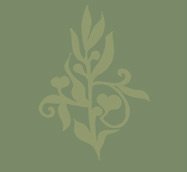|
My treatment approach has been moulded over the years, always driven by efficiency, effectiveness and supportive evidence.
There are three core elements to my evidence-informed approach.
(i) A trauma-informed orientation - a consideration of the role that unresolved life issues (most of us have them, to a greater or lesser degree), if they exist, have in the maintenance of the actual problems we want fixed.
In essence, the trauma-informed practice orientation approaches the task of assisting a client with the question: "What has happened to you?" as opposed to the conventional medical model characterised by the question: "What is wrong with you?"
(ii) A philosophical change emphasis - consistent with working towards a bottom line of "having a good life" while operating with the full realisation of the realities of an imperfect world populated by fallible human beings that necessitates the unavoidable and inevitable experiencing of frustrations and adversity (to a greater or lesser degree).
(iii) A skills based learning agenda - which includes assisting clients to be optimally equipped with knowledge and understanding about emotional management and the ability to implement strategies consistent with limiting or eliminating the interfering effects of the problems we want changed.
The techniques that I routinely utilise are: REBT (rational emotive behaviour therapy); TFT tapping (Thought Field Therapy); Clinical Hypnosis and hypnotherapy; and general CBT (cognitive behaviour therapy).
Dr Albert Ellis' Rational Emotive Behaviour Therapy (REBT)
I was first introduced to Albert Ellis' REBT as an undergraduate student at the University for Western Australia by one of my lecturers Dr. Barbara Bubna-Litic (nee Hudson) who enlightened us to the then newly published (1975) second edition of Albert Ellis's A New Guide to Rational Living. It immediately resonated with me and has been the grounding for my work. I later went on to train with Albert Ellis on eight separate occasions.
Ellis' approach is essentially a philosophical one that emphasises the direct connection between our thinking processes (attitudes, evaluations, and judgements) to our emotional, behavioural and physiological reactions and responses. This is in contrast to the common misconception of a direct link between things, events and circumstances and these reactions and responses.
By reaching an understanding and an awareness of these connections, we become enabled to apply choice and thereby influence the quality of our reactions and responses to our circumstances - a process that is more in line with us having a better life.
Albert Ellis emphasised the application of what he called technical eclecticism by which he means the application of a wide variety of techniques and strategies from diverse sources all aimed at achieving the required outcomes for each individual.
Dr Roger Callahans' Thought Field Therapy (TFT)
Developed from within clinical psychology, Thought Field Therapy tapping (TFT) involves tapping on acupuncture points using certain sequences (or algorithms) with a resultant direct aleviation of emotional distress associated with traumatic stress, fear, loss, grief and guilt as well as addictive urges.
There exists strong suggestive evidence that these tapping techniques can be effective in this way in around 75% to 80% of cases.
Thought Field Therapy (TFT) is the result of a progressive clinical psychologist's search for greater efficiency in the provision of effective assistance to people whose lives are interfered with by the experience of psychological distress and disturbed emotional and behavioural states.
Clinical Psychologist David Feinstein, in his 2008 Americal Psychological Association (APA) journal paper states that tapping approaches (including TFT) have reached the minimum threshold for being designated as an evidence-based treatment with one form having met the APA Division 12 (clinical) criteria as a "probably efficatious treatment".
Influential clinical psychologist and author Dr Raymond Corsini in his Handbook of Innovative Therapy (2e) 2001 has said "What is to be made of TFT? It is either one of the greatest advances in psychotherapy or it is a hoax.".
More than a decade after, we have three APA journal reviews of the evidence which belie the hoax proposition. Ref:Journal of General Psychology 2012
Cognitive Behavioural Therapy ( CBT)
This development of Albert Ellis' REBT places more emphasis on the logical testing of ones thinking and behaviour and less attention to the philosophical aspects.
I am one of fifteen Australian members of the International Association for Cognitive Psychotherapy (IACP), having trained with most of the leading international figures in CBT, regularly attending major international meetings.
Clinical Hypnosis
Accesses the subconcious mind to favourably alter the patterns resulting in benefits for dealing with issues such as chronic pain, IBS, addictive urges and child birth. Since 1984, I have held a diploma of Clinical Hypnosis (University of Melbourne) issued by the Australian Society of Hypnosis.
Christopher Semmens Services Information brochure
|
By appointment only.
during business hours.
|
|
|

FREE SUPPORT - TRAUMA RESEARCH PROJECT
Be a part of our trauma research project and access two free consultations with Christopher Semmens. Use the contact us form and type trauma research into the subject field for more information.
|
FREE
FearFix Anxiety Report
Complete your details in our contact page with the words free anxiety report to receive your copy contact us
|
|




